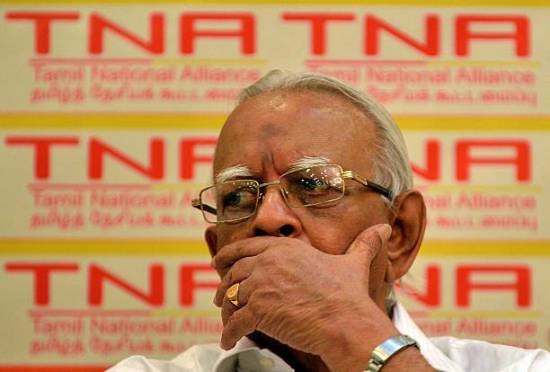By P. K. Balachandran
COLOMBO – Tamil Nation Alliance (TNA), the single largest Sri Lankan Tamil party in Parliament, is facing yet another critical period in its history following its poor performance in the August 5 elections.
Its tally has been steadily coming down from 22 in 2004 to 16 in 2015 and now to 10 in the 225-member 9th Parliament.
The Tamil nationalist constituency, which the TNA represented in Parliament since its founding in 2001 at the behest of the Tamil Tiger leader Velupillai Prabhakaran, has been steadily slipping out of its hands since the destruction of the Tamil Tigers in 2009.
Its failure to secure post-war justice for the Tamils, despite its still considerable electoral strength, and its links with India and the Western powers, even eleven years after the end of the war, has been going against it.
The TNA, which at first included all Tamil nationalist parties in the Northern and Eastern Provinces, began to lose constituents over time. The All Ceylon Tamil Congress (ACTC), led by Gajendrakumar Ponnambalam was the first to quit. The Eelam Peoples’ Revolutionary Liberation Front (EPRLF) led by Suresh Premachandran and a section of the Tamil Eelam Liberation Organization (TELO) led by Nallathamby Srikantha followed suit. Now, after the August 5 polls, a TELO faction led by Selvam Adaikalanathan and the Peoples’ Liberation Organization of Tamil Eelam (PLOTE) led by D. Siddharthan are on the verge of loosening their ties with the TNA, if not totally severing their connection with it, if their demands are not met by the single biggest constituent- the Ilankai Tamil ArasuKatchi (ITAK).
The TNA’s constituents have been contesting elections as ‘ITAK’ using its ‘House’ symbol, and are designated in Parliament as ITAK.
The internal quarrel is over the causes of the poor performance of the TNA in the just concluded elections. Ponnambalam’s outfit had bagged two seats and C.V. Wigneswaran’s outfit bagged one. Pro-government outfits led by Angajan Ramanathan and Douglas Devananda also did well. But the TNA got six seats less than before and its stalwart Mavai Senathirajah was defeated.
The anti-TNA Tamil radicals as well as pro-government groups have gained to the detriment of the TNA. The TNA’s ‘collaborative Tamil nationalism’, a middle of the road ideology which it has been propagating since the destruction of the Tamil Tigers, seems to be losing its mass appeal.
While this is so at the ideological level, at the organizational, functional and tactical levels too, the TNA has been losing its grip. There has been a persistent complaint that the ITAK is not carrying the other constituent parties with it and that decisions are taken by ITAK leaders R. Sampanthan and M. A. Sumanthiran in their personal or ITAK interest without consulting the other constituent parties. Recently, the duo appointed a person from the ITAK to the National List of MPs without consulting the other constituent parties.
However, the biggest complaint is that the ITAK leadership had not secured the demands the Tamils’ political and humanitarian demands despite the fact that the two top-most TNA leaders had an exceptionally close relationship with the leaders of the United National Party (UNP)-led government between 2015 and 2019 November. Due to the ruling UNP’s intervention, TNA’s R. Sampanthan was even given the post of Leader of the Opposition, when it should have gone to Mahinda Rajapaksa of the Joint Opposition.
The promised new federal constitution did not see the light of day, just as a judicial mechanism for fixing accountability for war crimes allegedly committed by the Sri Lankan armed forces did not. A mechanism to trace the war-time missing persons did not take off. Return of lands taken by the military during the war also remained an issue.
TNA’s failures led to a split among the Tamils, with section becoming radical, seeking “self-determination” and another section saying the anti-government stance has not borne fruit and that it was time the Tamils collaborated with the government of the day to get economic benefits. The voting pattern reflected these contradictory feelings, though the TNA retained its primacy, if not dominance.
Given the disaffection, the ITAK is likely to yield to the other parties’ demand that Sumanthiran step down from being TNA spokesman and give the place to Selvam Adaikalanathan of TELO and D. Siddharthan of PLOTE take over as the Chief Organizer in place of S. Sritharan. Decisions on these are likely to be taken at the TNA parliamentary group’s meeting on Thursday (27), Adaikalanathan said.
About the Author
P. K. Balachandran is a senior Colombo-based journalist who in the past two decades, has reported for The Hindustan Times, The New Indian Express and the Economist


